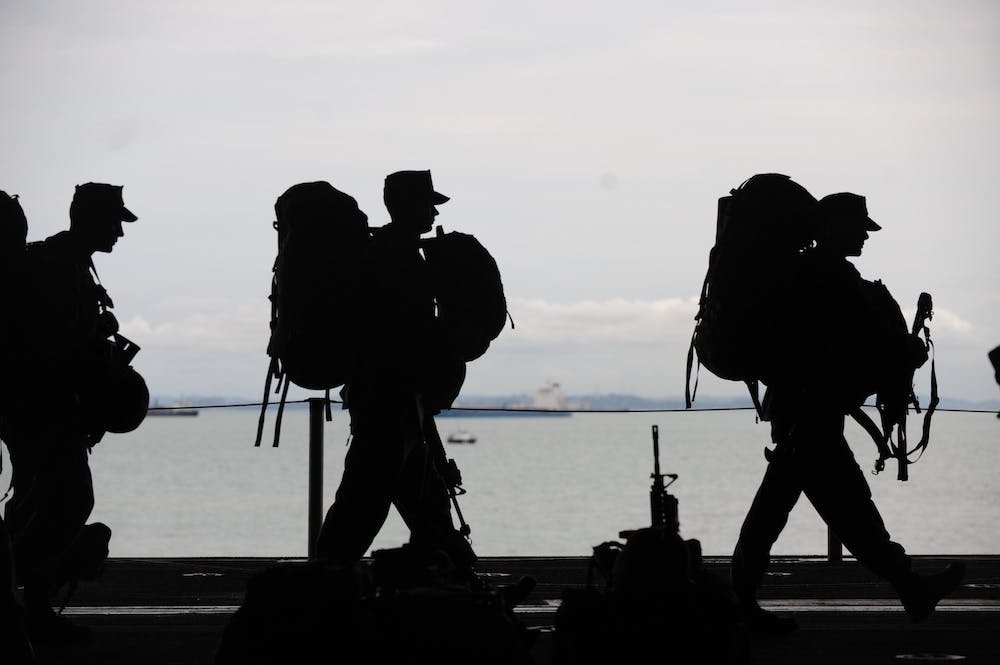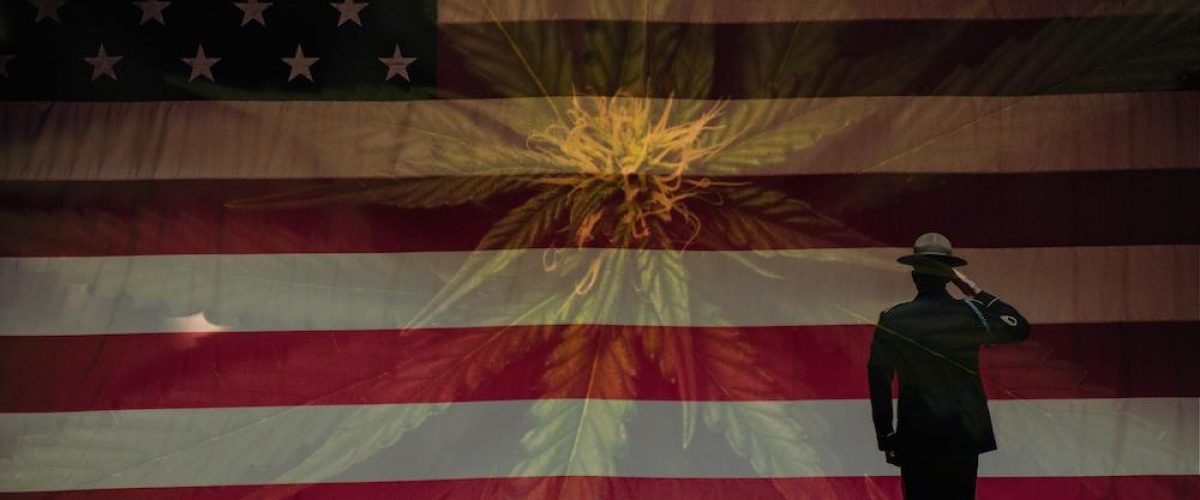Today is Veteran’s Day- also know as Remembrance Day, or, as I cross over the Canadian border, above a very stormy Niagara River, Armistice Day. As I leave a Canadian dispensary, where I was easily able to purchase a gram of Indica cannabis flower for under $10 USD, my mind wanders to our brave veterans who struggle access the medical cannabis they need and the broken system which has enabled this to happen.
As is the current global trend, cannabis has become a great deal more accessible to those in the United States, with many states legalizing the herb and others adopting strong medical cannabis programs. Cannabis has been shown to play a major role in the treatment of veterans with conditions which include depression, anxiety, PTSD, insomnia and chronic pain. If this is the case, why is it so difficult for American Veterans to have reliable, affordable access to cannabis?
The United States Department of Veteran’s Affairs has actively denied research illustrating that the cannabis plant has properties beneficial to veterans. “there is no evidence…that marijuana is an effective treatment for PTSD,” the department concluded.
The supportive system, designed to help veterans returning from combat adjust and excel in daily living has many cracks. This can be exhibited by the VA Healthcare system, where veterans often experience long wait times for critical medical treatment and an overall low standard of care. This lack of support allows for other conditions including depression, anxiety, chronic pain, and substance use to manifest in veterans. The VA does not prescribe medical cannabis to patients, regardless of the state they live in.
PTSD is a qualifying condition for medical marijuana in many states across the United States. It took many years for this condition to be added as a qualifying condition for medical marijuana and is still not given consideration in all US States.

Medical marijuana is now available in 34 of the 50 US States to some degree or another. Getting a medical marijuana card can be time consuming, when possible, and is often an expensive process involving specialized physician visits. Medical Cannabis itself is also an expensive prescription to fill and is not covered by many major insurance plans in America.
From an ethical standpoint, there are many points to take into consideration. It does not seem right that we can send Americans into combat at the age of 18, but they cannot access legal cannabis until they are 21 years of age. Many members of the military pay for their service with their lives. If an individual is deemed unable to use cannabis at this age, surely he or she is too young to decide wether or no to sacrifice their life to their nation?
It appears to be an ongoing trend in the United States: Americans are sent in to combat with valor and reverence, but once they return and grapple with the side effects of their service, often manifesting into mental illness or a substance use disorder, they are often treated with scorn and disrespect and left to struggle to find adequate treatment.

The suicide rate for veterans in the USA is more than double that of non-veteran citizens and is on the rise. The most at risk population are vets between the ages of 18 and 34 years of age. When the suicide rate began to escalate in the years after September 11, 2001, the government took measures to address the problem of veteran suicide, but these efforts have largely slowed.
Many cannabis dispensaries and brands are fighting back against this injustice by offering free memberships or discounted products to veterans. Flower Co. is one such company, offering veterans a free subscription and a30-50% discount on cannabis costs.
“We built Flower Co. on the premise that every person deserves safe, fair and affordable access to cannabis,” said Ted Lichtenberger, co-founder and CEO of Flower Co. “Our military veterans, who risk their life for our country, are no exception to this, which is why we are offering them a complimentary membership to our services.”
Veterans are becoming a major consideration to marijuana reform, with support from many politicians including democratic presidential candidates Sanders, Warren, and Buttigieg. Representative Barbara Lee of California has introduced a bill which would effectively legalize medical marijuana for military veterans.The cannabis industry has largely embraced veterans and many veterans have found their niche in the industry, bringing valuable advancements with them.
Lee released the following statement in honor of Veteran’s Day:
“On Veterans Day, we honor the brave service members who serve and sacrifice for our country. As the proud daughter of a veteran, I’m committed to working in Congress to ensure we keep our promises to our veterans and military families who have served selflessly and answered our nation’s call of duty.
My father, Lieutenant Colonel Garvin Tutt, served in both World War II and the Korean War. He sacrificed to serve his country despite the discrimination he faced at home and in the military as an African American. I work to honor his legacy and make sure that every servicemember and veteran is able to live with dignity and security.
Congress must do more to ensure every veteran has a roof over their head, to ensure our veterans come home to a job that pays them a living wage, and to ensure our veterans have access to the health care services they deserve.
That includes improving veterans’ access to medical marijuana. That’s why I introduced H.R. 1151, the Veterans Medical Marijuana Safe Harbor Act, to empower veterans and their doctors to make informed decisions about the use of medical marijuana without political interference.
The current federal prohibition on cannabis is harmful and counterproductive. Politicians should never stand between our veterans and their health care. To our veterans and military families, thank you for your service and your sacrifices.”



